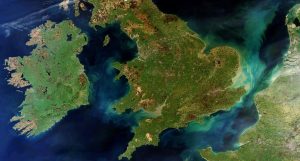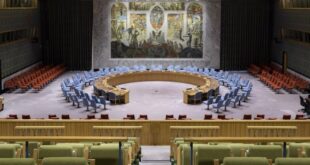
In an announcement made to the British Parliament on 18 December 2018, UK Secretary of State for Defence Gavin Williamson announced that a wide-ranging review of defence policy and capabilities that aims to prepare British armed forces for 21st Century warfare with peer powers is about to be concluded. Among the concepts being examined will be the British use of the space domain as a strategic environment in which warfare could take place.
“Our adversaries and competitors are accelerating the development of new capabilities and strategies. We must keep pace, and conceive of our joint force as consisting of five domains, air, land, sea, cyber and space, rather than the traditional three,” Williamson told the House of Commons.
“To drive innovation and change through the department I am launching a transformation fund. Next year, I will ring-fence £160m of the MoD’s budget to create this fund for innovative new military capability. I will look to make a further £340m available as part of the spending review,” Williamson added in his statement to Parliament.
The review, called the Modernising Defence Programme (MDP) and launched in January 2018, has been short on publicly available details, and has been seen by opposition politicians and UK defence analysts as underwhelming. The opposition Labour Party said that Gavin Williamson’s announcement was “waffle” and did nothing to address gaps in defence funding that amount to as much as U.S.$18.9 billion over the next ten years.
One analyst, Jon Louth, at the Royal United Services Institute (RUSI) in London, told Defense News that, “It’s an announcement about future announcements, it’s the [Ministry of Defence] keeping lots of option open…It’s all about seeing what can be achieved in next year’s government-wide departmental spending review.”
This said, the inclusion of space as a domain of strategic importance and concern in Williamson’s announcement signals a change in official British perspectives over the past few years where the tendency was to leave national security space matters to the United States and British advocates of indigenous military space power were often regarded derisively as “space cadets.”
Shifting geopolitical trends that have seen the return of great power competition, and the increasing threat of counterspace capabilities developed by countries such as China and Russia, along with the widespread acknowledgement that the British economy and way of war is critically dependent upon satellites, has likely caused this change in outlook.
Additionally, the prospect of Britain’s exit from the European Union – Brexit – at the end of March 2019 has highlighted the dependencies Britain has in the space and satellite sector, such as the importance of Global Navigation Satellite Systems (GNSS) like Galileo that London has officially withdrawn from after investing £1.2 billion into the project and years of effort by the British satellite industry. British political leaders are now advocating that the UK build its own GNSS system, a decision that could result in stark opportunity costs for UK defence policy since the military will still have access to the precision signals of the U.S. Global Positioning System (GPS) and Galileo.
This change in perspective has also extended to space-based intelligence, surveillance, and reconnaissance (ISR) capabilities, with the UK’s Defence Science and Technology Laboratory (DSTL) announcing a request for tenders to build a demonstration synthetic aperture radar (SAR) imaging satellite, with the possibility of building an operation constellation at a later date, called Project Oberon.





